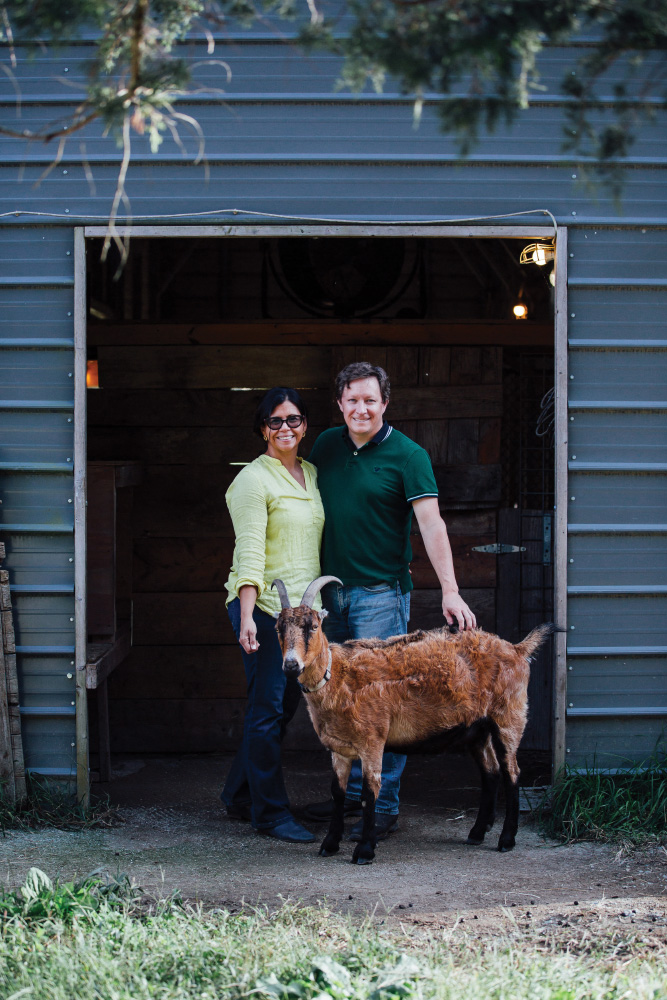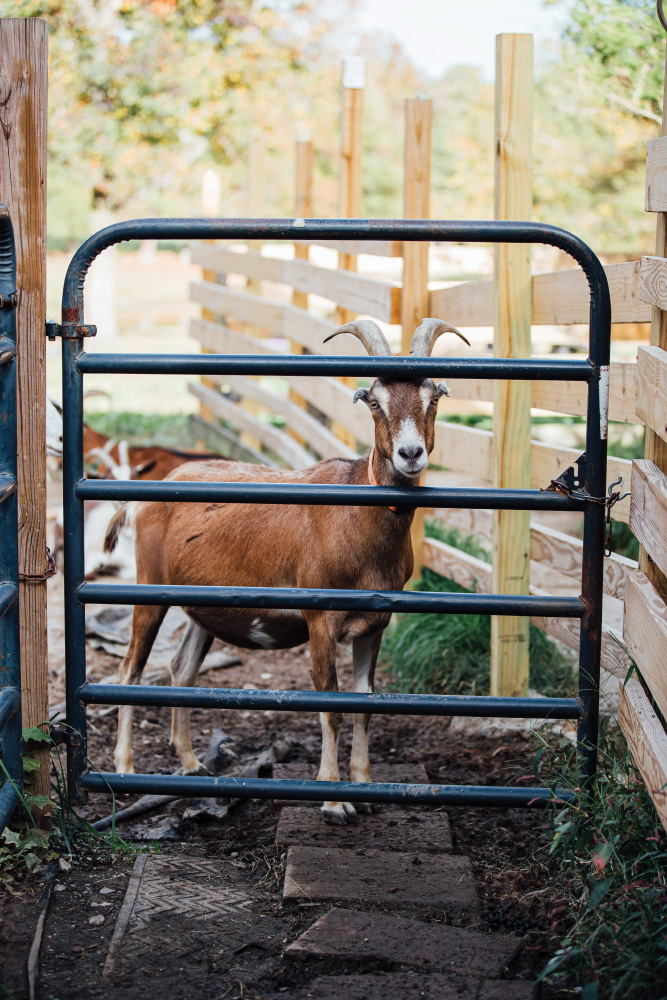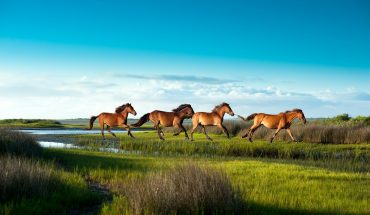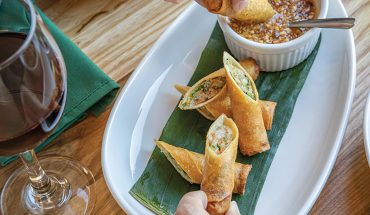The kids are alright at Elodie Farms in Rougemont, where Ted Domville and Sandra Vergara host dinners and meet-and-greets with their goats.
Words and photography by Mick Schulte
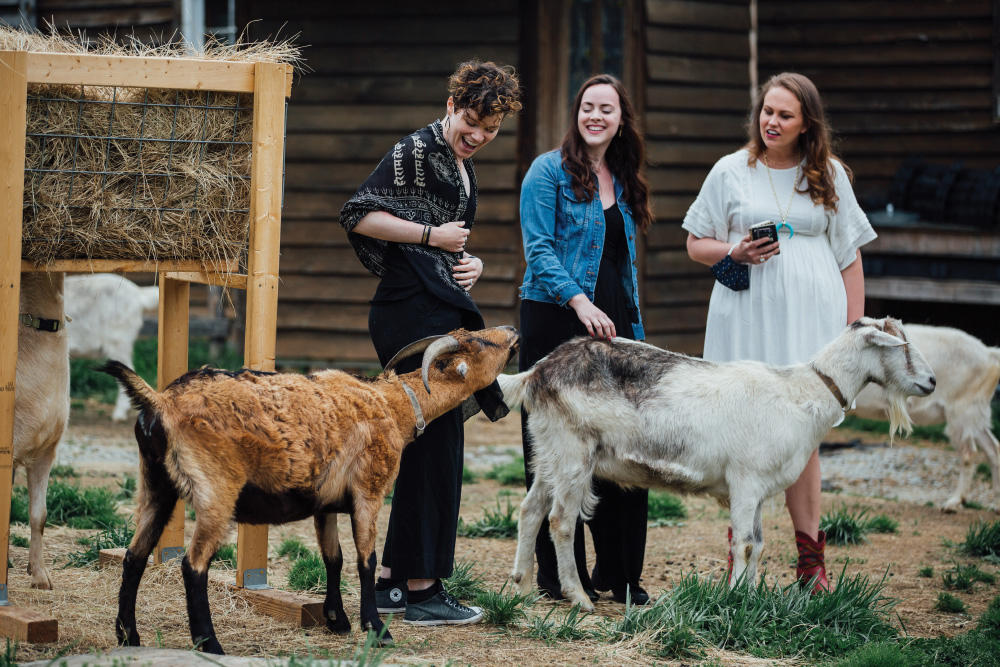
Ted Domville and Sandra Vergara are never alone on the steps of their historic farmhouse in Rougemont. Wherever they go, their kids follow and gently nudge their parents — with their horns.
The young goats at Elodie Farms are filled with the same mischief and desire for affection as human children. And before long, the nudges work: Domville scratches Frankie behind the ears, while Vergara admonishes Coconut for eating the table centerpieces.
Seventy-two goats live on Elodie Farms, which sits 40 miles north of Raleigh. The animals roam freely around 24 acres of land peppered with barn buildings both old and new. Each of the goats has its own name and unique personality — like Imanster, a “super shy” male who doesn’t particularly like human interactions (though once in a while he surprises Vergara with a snuggle), and Frankie, who’s the first to greet guests and finds his way to the center of every occasion. “The goats have vastly different likes and dislikes,” says Domville. “They’re intelligent and curious problem solvers, and they respond so much to affection.”
The couple met in Durham in 2008 while Domville was a chef at a restaurant called Six Plates and Vergara was working towards her PhD in genetics at Duke University. After she graduated, they moved to Worcester, Massachusetts, for Vergara to continue post-doctoral training.
However, being a native of Colombia, South America, Vergara was not used to the long, cold winters. “We lived there for five years before I couldn’t take it anymore,” says Vergara. “On a freezing morning in January of 2016, I asked Ted if he would consider moving back to the Triangle.”
That same day, Domville came across a Facebook post about Elodie Farms being for sale. “I half-jokingly said, Make the call, and seven months later we were fully moved in,” says Vergara.
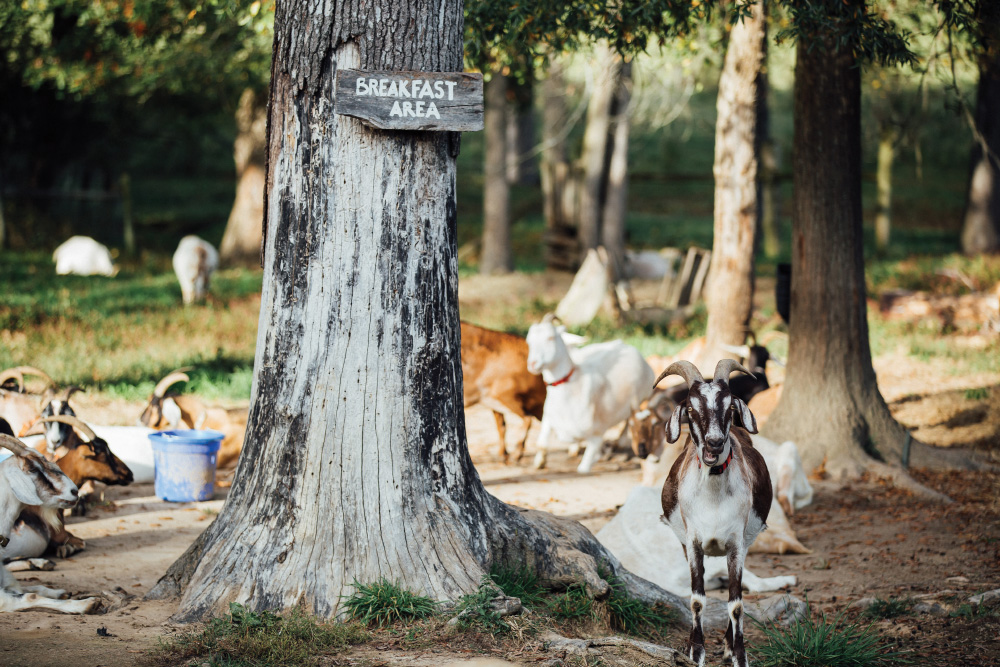
Now Domville works at the farm full-time as a cheese maker and chef, and Vergara splits her time between the farm and a scientific career in Research Triangle Park.
Like any new parents, when Domville and Vergara started their journey in raising goats, the learning curve was steep. “To say that we were ill-prepared for a life of farming is a gross understatement,” says Vergara. “Every day was a different challenge: goats breaking legs, goats on the roof, goats having babies in the middle of the night… you name it.”
But Domville and Vergara quickly fell in love with the animals. They both became vegetarians and decided that Elodie Farms would be a no-kill dairy, even if it meant sacrificing profits. “We don’t breed our goats yearly, and we let mama goats raise their own kids,” says Vergara.
Today, Elodie Farms makes goat cheese, goat milk, and whey crackers, and they sell the items on their website for either pickup or delivery.
They also host farm dinners about twice a month, where guests can meet the goats and eat a five-course meal created by Domville. One recent menu included corn cakes with oyster mushrooms, roasted squash salad, and a braised beef shank with turnips, wild rice, and wojape (any meats they serve are pasture-raised and come from small North Carolina farms that are certified Animal Welfare Approved). Domville prepares everything in the farmhouse kitchen with a small staff and volunteers to help serve customers, and the menus are developed with an eye toward sourcing local. “Whenever we can, we get veggies directly from individual farmers, and we source all our organic vegetables from Happy Dirt,” says Domville.

On these evenings, the quiet farm comes alive as people wander the fields with wine in hand. Guests dine under a large pavilion outdoors, starting with a cheese plate featuring, naturally, goat cheese in their seasonal flavors, served alongside Elodie Farms crackers. “I love my time at the farm — you can always expect a nice tour, happy interactions with the goats, and a delicious dinner,” says Eric Hastie, a Durham local who’s a frequent patron of the dinners.
Many of the people who attend the dinners are already familiar with the goats, and might even have a favorite. Thanks to Instagram, Vergara has created a nationwide fan club for her animals, including Captain Jack, Poppy, and Casper the Friendly Goat, to name a few. “I always laugh when they sneak up behind you to get a scratch between the horns,” says Hastie. “They are funny animals with a lot of personality.”
Inviting folks to sample their farm life is a highlight for Vergara: “The dinners are one of the things we love most about our farm — bringing people here to enjoy it and sharing our experiences as farmers.”
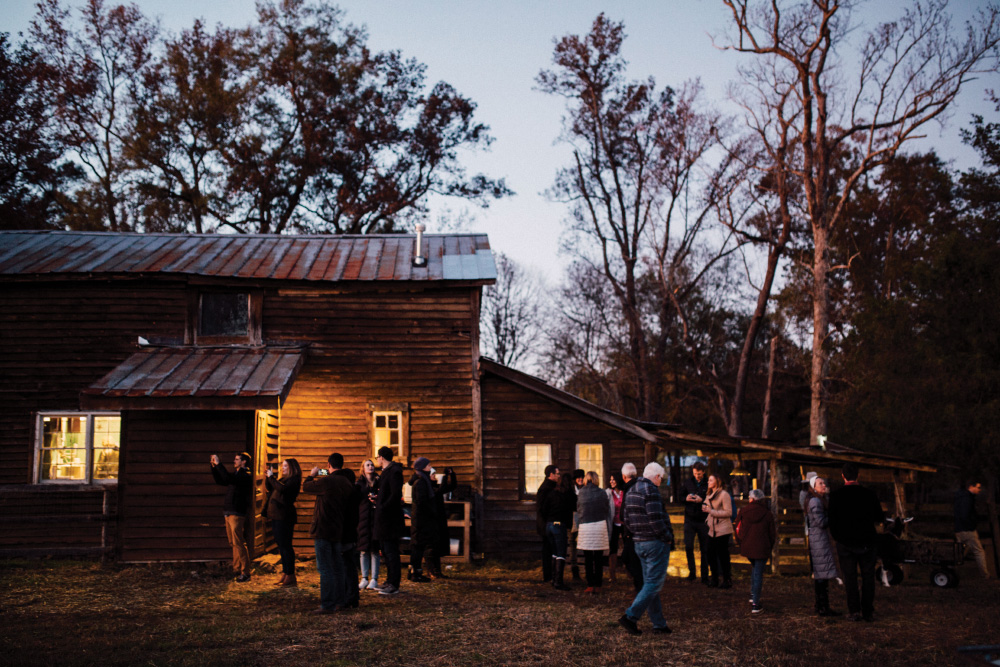
__
This article originally appeared in the December 2021 issue of WALTER magazine.

